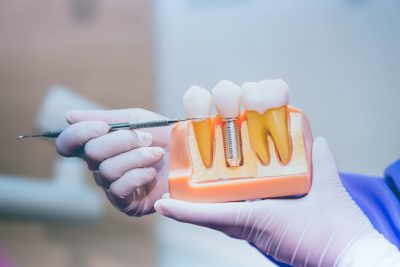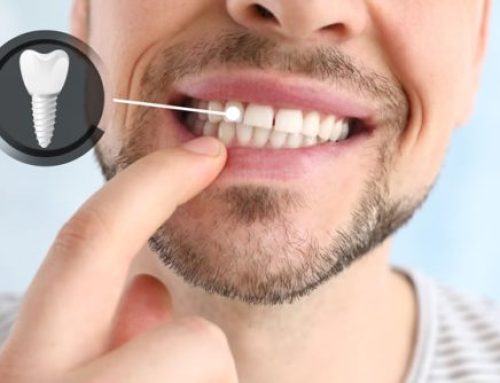 In the past few years, dental implants have gained lots of popularity among both dentists and patients. And while dental implants guarantee lots of benefits, most patients still don’t know much about them. As professionals in dental care, we are here to provide the most accurate answers to your dental implant-related queries:
In the past few years, dental implants have gained lots of popularity among both dentists and patients. And while dental implants guarantee lots of benefits, most patients still don’t know much about them. As professionals in dental care, we are here to provide the most accurate answers to your dental implant-related queries:
So, what are dental implants?
These are metallic devices surgically lodged into your jawbone. Their primary function is to anchor both replacement teeth and bridges connected to the implants. Dental implants offer a compact structure that permanently replaces missing teeth with a dental prosthesis, also referred to as a dental bridge or crown.
Dental implants usually provide dentists a plethora of options when it comes to working with patients who either are not willing to or can’t go through extensive extractions and restorations to fill the gaps between their teeth.
What’s the link between dental implants and cancer?
Currently, there is no clinical evidence that suggests dental implants enhance your risk of developing cancer. A 2017 research conducted using EMBASE and MEDLINE databases established that there is no direct relationship between dental implants and mouth cancer. With that in mind, it is highly advisable that anyone who has dental implants goes for routine mouth cancer screenings.
Can dental implants trigger headaches?
In some patients, dental implants can potentially cause headaches. Perhaps this is because the procedure involves the removal of the nerve of the jawbone, and this may alter how your face feels. Some patients have indicated having mild to moderate headaches in the bridge area. Usually, pain-relieving medication can help with pain management and relieve your symptoms.
Some patients may also experience numbness in a localized area of the mouth. And while this is not a common condition, it can be relieved using OTC medications. However, in case your numbness fails to subside even after your doctor’s recommended duration of treatment, don’t hesitate to contact your dentist.
Can dental implants trigger nerve damage?
First and foremost, it’s worth noting that dental implants are intended to stimulate your jawbone and promote its growth. And when the bone actually grows, it will always result in jaw pain. This type of pain can either be mild or severe and may also impact the normal functioning of your gums and teeth. However, in most instances, dental implants don’t cause nerve damage. But it is worth noting that they can potentially result in a change in how your face feels. Diabetes patients may have a greater risk of nerve damage perhaps because their immune systems are already compromised. If you are already suffering from diabetes, it’s highly recommended that you regularly see your doctor ward off complications.
Do dental implants trigger a sinus infection?
Dental implants can potentially bring about post-operative pain, which can either be recurrent or persistent. Some people may experience sinus problems during their recovery period following a dental implant operation. Sinusitis is a sinus bacterial infection. Infection in other areas of your mouth may also result in pain, so should warrant an immediate doctor appointment. If you have dental implants, you are strongly advised against applying any facial sprays or creams unless your dentists say otherwise.
What triggers infection following a dental implant surgery?
It is imperative to note that infection is arguably the most prevalent dental implant complication. Thankfully, it’s usually easy to treat. Usually, the infection is caused by a bacteria known as staphylococcus. And this bacterium doesn’t always exhibit any visible symptoms.
Usually, when your doctor is through with the dental implant procedure, he/she puts the implant in an enclosed container before sending it to the lab for drilling. These bacteria can potentially become airborne, getting trapped inside the customized case with your implant. This implies that it can potentially find its way to the site of the implant, resulting in an infection. To keep infection at bay, drink lots of water and regularly brush your teeth as recommended by your doctor.
Also, during this period, stay away from smoking or any other tobacco products or lozenge cough drops that feature nicotine. It is important to note that smoking aggravates gum disease and may also cause other life-threatening health issues, including heart diseases. If you are diabetic, keep your blood sugar levels in check to ensure good oral health.
If you are looking for a dentist, HPS Advanced Dental Care would love to see you. Dr. Heather is gladly accepting new patients.
We are located at 4741 24 Mile Rd. Shelby Township, MI 48316, and we can be reached at (248) 652-0024. We look forward to meeting you!


